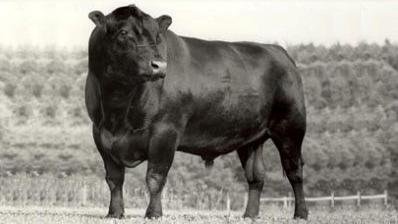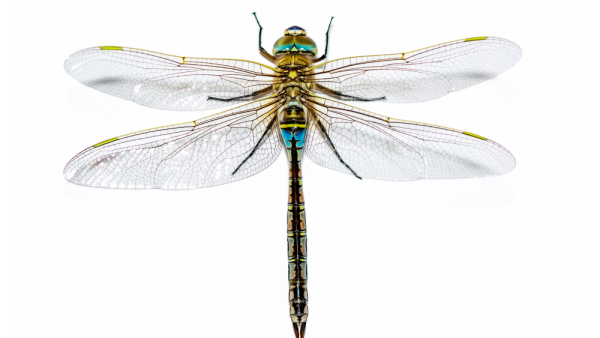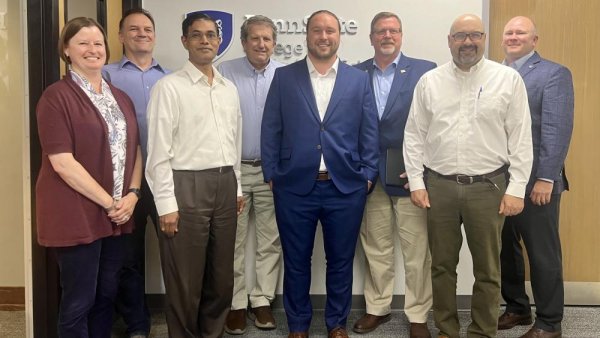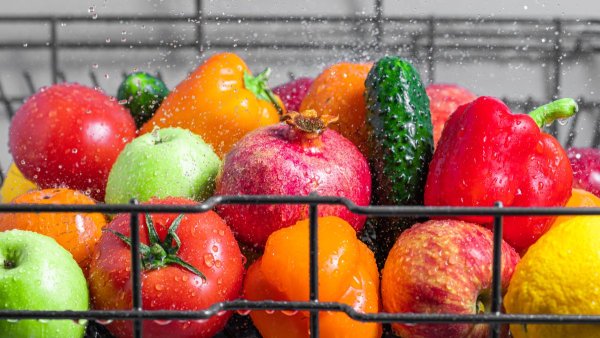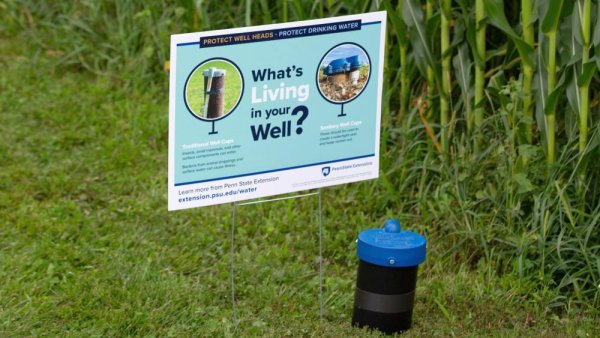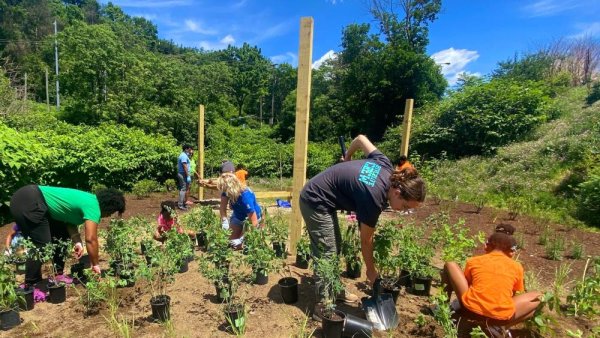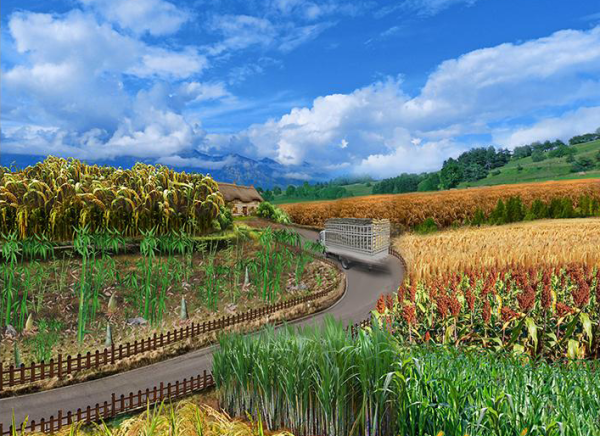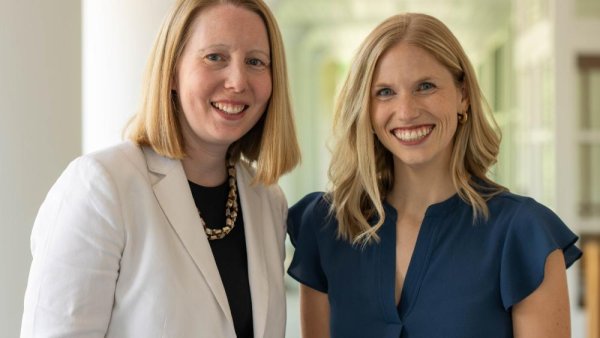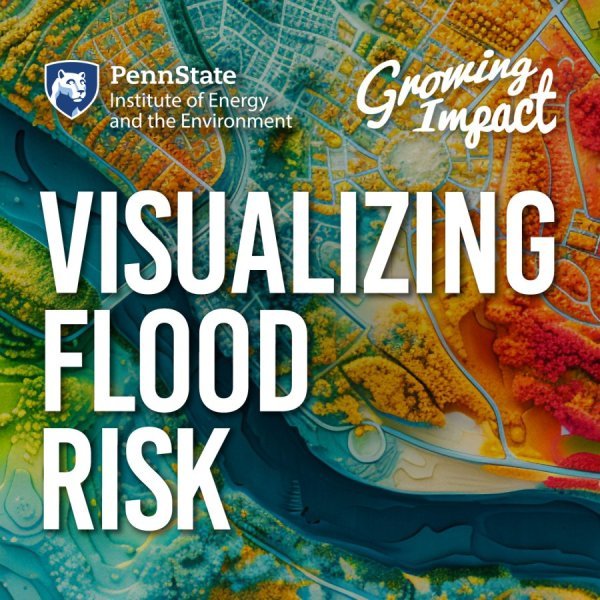Penn State researchers receive USDA-NIFA grant to study male cattle genetics
| psu.edu
More than 60% of dairy cows in the United States are bred via artificial insemination. While significant advances have been made in understanding cattle genetics, particularly in relation to milk production and other economic traits, there is still much to learn about the genetics underlying the reproductive organs and cells in cattle, according to a team of researchers in the Penn State College of Agricultural Sciences.
IST student interns with dragonflies in Ghana
| psu.edu
Rachel Desulme, a fourth-year data sciences student in the Penn State College of Information Sciences and Technology, spent her summer internship studying dragonflies in Ghana.
Penn State’s College of Ag Sciences, Phospholutions forge strategic partnership
| psu.edu
Leaders from Penn State’s College of Agricultural Sciences and Phospholutions Inc. have signed a memorandum of understanding to enhance their collaboration in research and education.
Viral video reignites debate: Can you wash fruits and vegetables in the dishwasher?
| nbcnewyork.com
Some called the hack “genius,” while others said this is why you “can’t eat at everybody’s house.” This article quotes Luke LaBorde, professor of food science.
Can 3D printing impact affordable housing stock? HUD thinks so
| finance.yahoo.com
3D printing could be a path toward faster, less expensive and more efficient affordable housing construction. This article mentions Penn State research.
Ag Progress Days tours cover pond management, animal research, woodlots and more
| psu.edu
Pond management, livestock research and organic vegetable production systems will be among the topics highlighted during research and educational tours at Penn State's 2024 Ag Progress Days, Aug. 13-15 at Rock Springs.
City Semester Pittsburgh student focuses on sustainability, community engagement
| psu.edu
Penn State student Madeleine Ryan is a member of the 2024 City Semester Pittsburgh cohort, a program facilitated by the Franco Harris Pittsburgh Center at Penn State to enable Penn State students to spend their summers working on urban sustainability and engagement in Pittsburgh communities. Ryan is interning with Riverlife, a nonprofit organization that works with Pittsburgh property owners, public officials and community groups to create, activate and celebrate the city’s riverfronts.
Apply today: Penn State NSF I-Corps virtual fall cohort for researchers
| psu.edu
Penn State’s National Science Foundation I-Corps Short Course is accepting applications for its virtual August/September cohort. The no-cost program helps researchers test a startup idea through customer interviews and educational programming on the lean startup methodology.
How duplicated genomes helped grasses diversify and thrive
| psu.edu
A new study led by Penn State researchers identified whole-genome duplication events in the plant family that includes rice, maize, wheat and bamboo and explored how retention or loss of duplicated genes helped shaped the evolution of grasses allowing them to thrive in a multitude of environments.
Growing Impact: Floating offshore wind energy
| Featuring Mark Miller, Sven Schmitz
Wind power has come a long way from its humble beginnings as water pumps and windmills. Today, it's a major contributor to our electricity generation. While onshore wind farms are well-established, the U.S. has yet to tap into the full potential of offshore wind. With advancements like floating turbines and improved blade designs, wind energy is poised for another significant leap forward.
Harrisburg drinking water treatment lab awarded grant
| psu.edu
Penn State Harrisburg has been awarded an American Water Charitable Foundation 2024 Water and Environment Grant focused on upgrading the drinking water treatment lab in the School of Science, Engineering, and Technology.
Q&A: Achieving energy literacy through decarbonization research
| psu.edu
A team of researchers in the Penn State College of Engineering was awarded a five-year, $1 million grant from the U.S. National Science Foundation to study how undergraduate engineering students learn and develop into energy-literate engineers as they engage with long-term research experiences centered on decarbonization.

